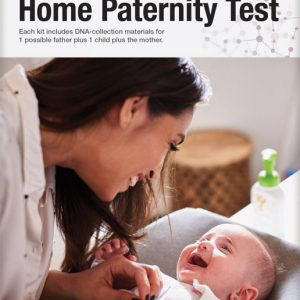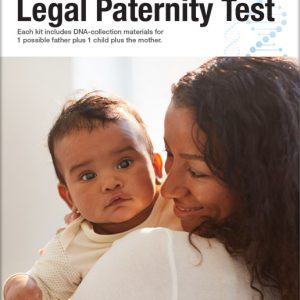
Today’s medical treatments make getting and staying well easier than ever for millions of people who otherwise might not have survived their disease or accident. But some treatments can actually alter DNA, affecting some genetic analyses—like paternity tests—and making getting conclusive results difficult. If you’re considering doing a paternity test, here’s what you need to know about stem cell transplants, bone marrow transplants, blood transfusions, and how they can affect paternity tests.
Blood Transfusions and Paternity Tests
Chances are good that if you’ve had a standard blood transfusion more than two weeks prior to submitting cheek-swab samples, it should not affect your paternity test. Writing for Scientific American, medical professor Michelle N. Gong explains: “Studies have shown that donor DNA in blood transfusion recipients persists for a number of days, sometimes, longer, but its presence is unlikely to alter genetic tests significantly.”
If you are a pregnant woman who has had a recent blood transfusion and are interested in our Certainty™ Non-Invasive Prenatal Paternity test, keep in mind this test requires a small blood sample. When scheduling the test, you should always let the lab know ahead of time that you’ve had the treatment. Depending on when you had the transfusion, you may need to wait a little longer before testing, just to be on the safe side.
Stem Cell/Bone Marrow Transplants and Paternity Tests
Stem-cell transplants and bone-marrow transplants have the same goal in mind: to help build a patient’s immune system so they can better combat disease. Stem cells can either be collected directly from the donor’s blood or—in fewer cases—are extracted from the donor’s bone marrow. In both procedures, the patient ends up with the donor’s white blood cells and therefore the donor’s DNA too. Unlike a blood transfusion, these effects are long-lasting.
According to genetic counselor Brianne Kirkpatrick, “…a saliva or cheek swab on a stem cell recipient will often fail to give a DNA result because the DNA sample is a mixture of the original person and the donor.”
A bone-marrow or stem-cell transplant doesn’t always result in two profiles on a swab, due to a variety of factors, but it’s important to know that mixed DNA is a possibility and—if this is the case—then a paternity test cannot be completed with samples obtained through cheek swabs.
Q: If I’ve had a bone-marrow or stem-cell transplant, does that mean I can’t ever do a paternity test?
A: No. There are parts of the body that are less affected by the transplant than others. DDC can extract DNA from recently-plucked hair samples (with the root) or fingernails provided by the transplant recipient. Keep in mind there is a $150 non-refundable viability fee to ensure the samples submitted provide enough DNA for testing. Please call us directly to arrange for a paternity test using alternative samples.
Q: What if I had a transplant using my own stem cells?
A: That’s not a problem, since the DNA you’re receiving is your own.
Wrapping It Up
If you’ve had a stem-cell, bone-marrow transplant, or blood transfusion, this does not automatically mean you cannot do a paternity test—but it’s important to know that not being able to get results is a real possibility. Our experts can help you determine whether the time is right and which type of samples might optimize your chances of a successful test.
Call us at 800-929-0847: We’re here to help.
Do you have questions or comments about this topic? Share in the comments and we’ll answer.






Had an dna test done came back 99.9% the father and he is the dad. But he said because he had a bone marrow transplant over 20 years ago it stil has a chance of the baby not being his.
Hi, Alyscia. In most cases where there’s a bone marrow transplant, the result is 0% when the man tested is actually the father. In other words, a bone-marrow transplant would not produce a false 99.9% result. He is the father with a 99.9% probability, yes.
My fiancé had leukemia 7 years ago, he had a bone marrow transplant during that time. He had a son prior to cancer and one after. Could they do a sibling dna test? If not, how could we go about figure out if they are his?
Clarification: If the boys are siblings.
Hi, Amanda. Bone-marrow transplant recipients may have DNA from the donor throughout the rest of their lives and are therefore not good candidates for DNA testing.
I was tested as a potential grandparent. I’ve had several blood transfusions years ago for severe anemia. The test came back as unsupported. Would my blood transfusions affect the test in any way?
Hi, Jamie. Blood transfusions from long ago are not an issue for a current test.
I had a bone marrow transplant 4.5 years and was wanting to get a paternity test done on my suspected father. Will I still have part of my fathers dna to determine if he is my father ?
Hello, Dominique. Because you’ve had a bone marrow transplant, your body contains DNA from the donor and so any relationship-test result would be unreliable.
Hello, could the test that she mentioned be done using fingernails or hair as stated in the article?
Hi, Nise. It is possible, but the lab would have to conduct a viability test and fingernail and hair samples can be difficult specimens.